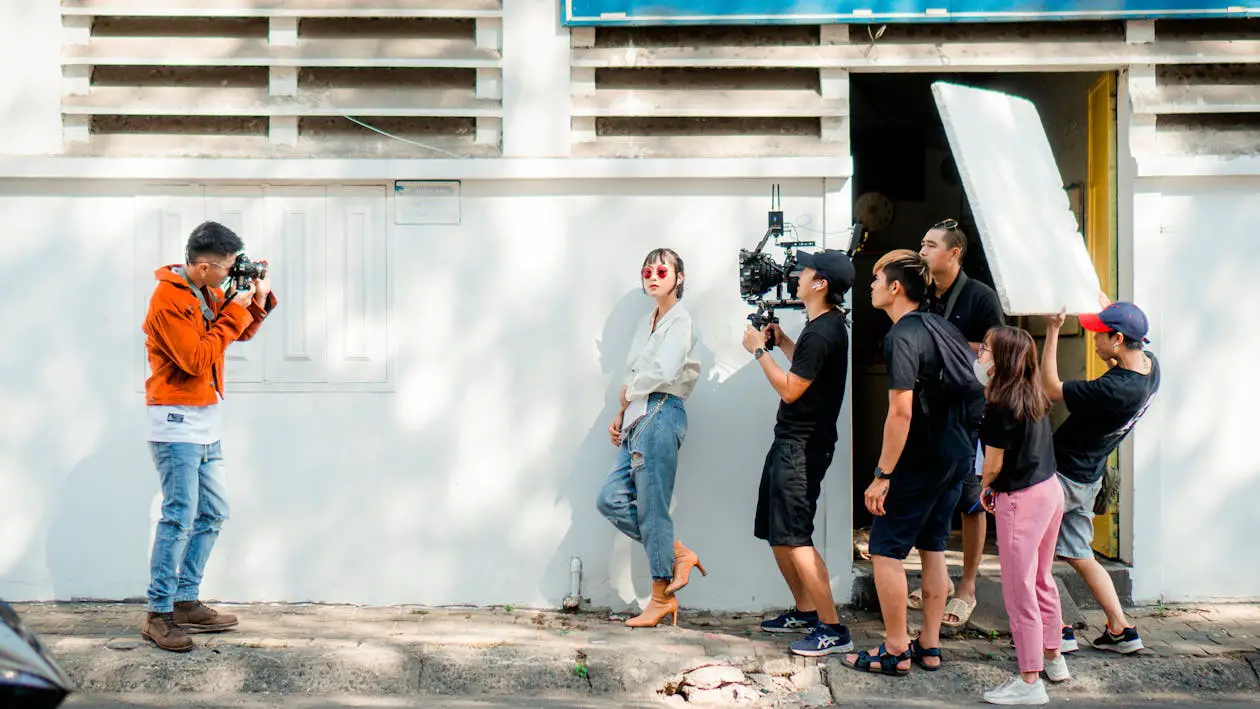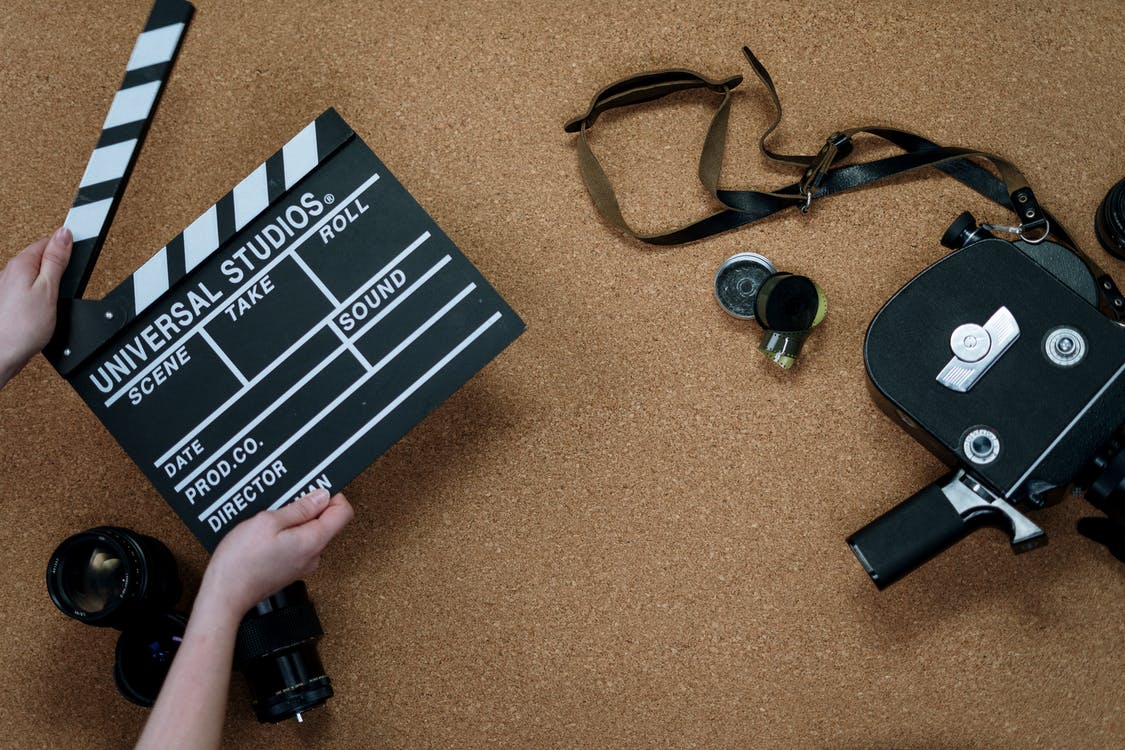Question:
How Long Does the Casting Process Take?
(By Carmichael Phillips)

(Photo: Koolshooters | Pexels)
RELATED TOPICS:
How long does it take to hear back after I submit my self-tape?
What is a Super-Objective in Acting?
Question:
How Long Does the Casting Process Take?
Answer:
The duration of the casting process depends on several factors, including the scope of the production, the type of role, the level of talent being sought, and the overall timeline of the project.
Type of Production
Film and Television:
For feature films and television shows, the casting process can take anywhere from a few weeks to several months. This is particularly true for larger productions that involve multiple lead roles, supporting characters, and extras. For example, a major Hollywood film might require 3 to 6 months to finalize its cast, especially if the filmmakers are looking to attach high-profile talent. On the other hand, smaller, independent films may move faster, with the entire casting process taking 1 to 2 months.
Theater:
Theater productions typically operate on a tighter timeline, especially for regional or community theater, where rehearsals are scheduled to start within a set period. The casting process for theater productions usually takes between 2 to 4 weeks. For Broadway or major productions, however, the process can extend to 2-3 months or longer, as producers and directors meticulously select the right performers.
Commercials:
Casting for commercials is often much faster than for film, TV, or theater. Commercial productions usually operate on tight schedules, with the entire process often completed within a few days to a week. This rapid timeline is because commercials have quicker turnaround times and typically involve less complex character development.
Role Type

Lead Roles:
Casting lead roles, especially in film and television, is one of the most time-consuming parts of the process. Directors and producers often conduct extensive searches, reviewing hundreds or even thousands of auditions. They may also negotiate with well-known actors whose schedules or contracts can delay final decisions. In these cases, casting for lead roles can take several months.
Supporting Roles:
Supporting roles tend to be cast more quickly than lead roles, but they still require careful consideration. Casting directors might need a few weeks to a couple of months to finalize the actors for these parts, especially if they are essential to the story’s development.
Extras and Minor Roles:
Casting extras and smaller roles usually happens towards the end of the process and can be done relatively quickly. Depending on the needs of the production, this phase of casting might only take a few days to a week.
Talent Level
 (Photo: Alex Green | Pexels)
(Photo: Alex Green | Pexels)
Unknown Actors:
When casting for unknown or emerging actors, casting directors typically hold extensive open calls and callbacks. This process can extend over a few months, particularly if the project involves multiple characters and an intensive audition process.
Established Actors:
Casting well-known actors often involves direct offers, negotiations, and agents. This process can be faster, assuming the actor’s availability lines up with the production schedule. However, high-profile actors may have busy schedules or contract demands that can cause delays, potentially lengthening the casting period.
Casting Logistics
 (Photo: Le Minh | Pexels)
(Photo: Le Minh | Pexels)
Location:
The logistics of coordinating auditions, especially in different locations or countries, can extend the casting timeline. International productions, for instance, might need more time to coordinate with actors from various regions, schedule auditions, and review performances remotely.
Audition Rounds:
Casting for major roles often requires multiple rounds of auditions. These include initial auditions, callbacks, and sometimes chemistry reads where actors perform scenes together to assess their on-screen or on-stage rapport. This multi-stage process can add several weeks or even months to casting timelines.
Project Timelines
 (Photo: Cottonbro | Pexels)
(Photo: Cottonbro | Pexels)
Tight Timelines:
Some productions operate under tight schedules, meaning casting must be completed quickly. In such cases, casting might wrap up in a few weeks as decisions need to be made swiftly to begin filming or rehearsals.
Flexible Timelines:
On the other hand, projects with flexible timelines or delayed production schedules might allow for a more drawn-out casting process. Directors and producers might take their time to ensure they find the perfect actor, extending the casting phase to several months.
Typical Casting Timeline Breakdown
 (Photo: Jon Tyson/Unsplash)
(Photo: Jon Tyson/Unsplash)
Pre-Casting (1-2 Weeks):
Before official casting begins, the casting director collaborates with the director, producers, and sometimes the studio to create a casting breakdown. This includes detailed descriptions of the characters being cast and the specific needs of the production. At this stage, casting notices are distributed to agents, managers, and talent networks.
Auditions (2-8 Weeks):
Once the breakdowns are released, auditions begin. Depending on the project, this phase can last anywhere from a couple of weeks to a few months. Casting directors may see hundreds of actors during this time, gradually narrowing down the options.
Callbacks and Chemistry Reads (2-6 Weeks):
After initial auditions, selected actors are called back for additional readings. In some cases, actors will participate in chemistry reads to test their dynamic with other performers. This phase can last a few weeks as directors and producers make final decisions.
Final Casting Decisions (1-2 Weeks):
Once callbacks and chemistry reads are complete, the casting director works with the director and producers to finalize the cast. At this stage, contracts and negotiations are handled by agents and the production team. Depending on the complexity of the deal-making process, this phase can take anywhere from a few days to a couple of weeks.
Finalizing Cast and Announcements:
Once all roles are cast, the production company typically announces the final cast list, especially for high-profile productions. This can be a pivotal moment for the marketing of the project.
In short, the casting process can take anywhere from a few days to several months, depending on the type of production, the roles being cast, the availability of actors, and the overall timeline of the project. For major film or TV productions, the process typically spans 2 to 6 months, while theater productions and commercials can often be cast in a few weeks.



